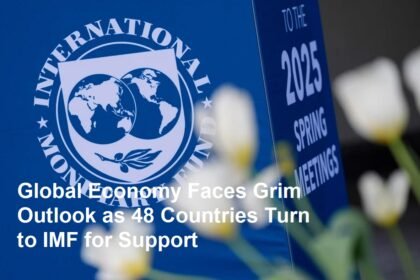Reasons and Background of the Trade War
The trade war between the United States and China is one of the significant trade conflicts in global economic history. The main cause of this trade war is the United States’ dissatisfaction with China’s trade practices, which are considered detrimental to the US economy. In order to protect domestic economic interests, the US has also imposed import tariffs on various products from China. Apart from that, the role of technology and global power competition between the two countries are also causes of trade conflicts. The United States accuses China of practicing intellectual property theft, which is closely related to advanced technology belonging to US companies. Distrust between the two countries is increasingly worsening the condition of the trade war.
The challenges faced by both countries in maintaining their economic stability are quite complex. The United States must strive to reduce the trade deficit and protect its strategic industrial sectors from the negative impacts of trade conflicts. Meanwhile, China is required to reform its trading system to make it fairer and more transparent in order to maintain good economic relations with the US. Overall, the trade war between the US and China not only affects the two countries but also has a global impact. The domino effect of this conflict has shaken the economies of other countries and created a risk of world economic instability. Therefore, it is important for both countries to find diplomatic solutions to overcome the problems behind this trade conflict and to protect their respective interests without creating further losses for the other party.
Impact of Trade Wars on the Global Economy
The impact of trade wars on the global economy cannot be ignored. Trade conflicts between two large economic powers, such as the United States and China, significantly affect global economic growth. The uncertainty arising from this trade war has made many countries and market players worried about the rate of economic growth. This is reflected in the decline in world economic growth projections in recent years. Apart from the direct impact on the two countries in conflict, the trade war also has an impact on other countries involved in international trade. Economic uncertainty and exchange rate fluctuations affect the resilience of their economies, making trade more competitive. Some countries could feel the double pressure of slowing global economic growth and increasing trade barriers.
See also: Try Forex indicators on MT4 with 3500 No Deposit Bonus now!
The trade war also led to a reorientation of international trade relations. Many countries are starting to look for alternative markets to maintain the balance of their exports and imports, thereby reducing dependence on countries in conflict. Additionally, a trade war could lead to the failure of some multilateral agreements and the creation of new, exclusive trading blocs. The implications of trade wars for other countries involved in international trade, on the one hand, they can take advantage of this situation to increase competitiveness and overcome existing trade barriers. Meanwhile, on the other hand, they may have to adjust economic and monetary policies to maintain a balance of economic growth and price stability. In the long term, the best solution is to seek a multilateral agreement that is fair and inclusive for all countries to ease tensions and open wider market access.
Diplomatic Efforts and Negotiations to End the Trade War
The trade war between the United States and China has become a point of global attention in recent years. The two countries have taken a number of diplomatic and negotiating steps to try to resolve their conflict. One of the steps taken by the US is to relax export restrictions on certain technologies to Chinese companies, while China has sought to increase imports of agricultural products from the US. Both parties have also held a series of high-level meetings to discuss this issue. In addition, the leaders of the two countries, namely the President of the US and the President of China, regularly hold direct communication via telephone or face-to-face meetings. This communication aims to build trust and improve relations between the two countries, as well as discussing possible agreements that can be reached in resolving the trade war.
Possible compromises or agreements that could be reached between the US and China include reducing import and export tariffs, increasing market access for companies from both countries, and resolving differences in terms of intellectual property rights. Real progress can be achieved if both parties are willing to work together and find mutually beneficial solutions. Even though negotiations have taken place and some progress has been seen in resolving the trade conflict, there are still many challenges that both countries must face. However, through continued diplomatic efforts and negotiations, it is likely that both the US and China will realize the importance of reaching an agreement that can benefit both parties as well as the world economy.
Factors Determining the Likely End of a Trade War
The first factor that determines the possible end of a trade war is the political and economic desire of both countries, the United States and China, to end this conflict. In a situation like this, the leaders of both countries must carefully weigh the advantages and disadvantages of continuing or ending the trade war. Some things to pay attention to include pressure from the domestic economy as well as support for their trade policies by various interest groups and political parties.
Foreign policy considerations and international relations also influence decisions regarding the end of trade wars. Both countries may see an opportunity to strengthen alliances with other countries as a way to improve their position in negotiations. This factor becomes important when countries such as the European Union, Japan and India also want to take part in the global economic competition resulting from the trade war between the US and China.
The ongoing impact of the trade war on US economic stability is also a determining factor in resolving this conflict. Uncertainty related to the trade war has led to volatile stock markets, slumping domestic investment growth, and stress on hundreds of thousands of workers in industries affected by tariffs. If these negative impacts continue to escalate, US leaders may seek solutions that can reduce the burden on their economy and labor market.
Meanwhile, the impact of the trade war on China’s economic stability is also crucial for the possible end of this conflict. China faces slowing economic growth, as well as pressure from unemployment and policy uncertainty exacerbated by the trade war. In absorbing this situation, China’s leaders will assess whether the trade war can provide a domestic political boost or actually bring further harm to their economy and social stability. Making the right decision will be key in determining the next steps and finding common ground that might end the trade war. China’s leaders need to ensure that their strategy will benefit long-term economic growth as well as the country’s social stability. A mutually beneficial agreement, based on mutual understanding and cooperation between the US and China, could lead them towards resolving this international trade conflict.









